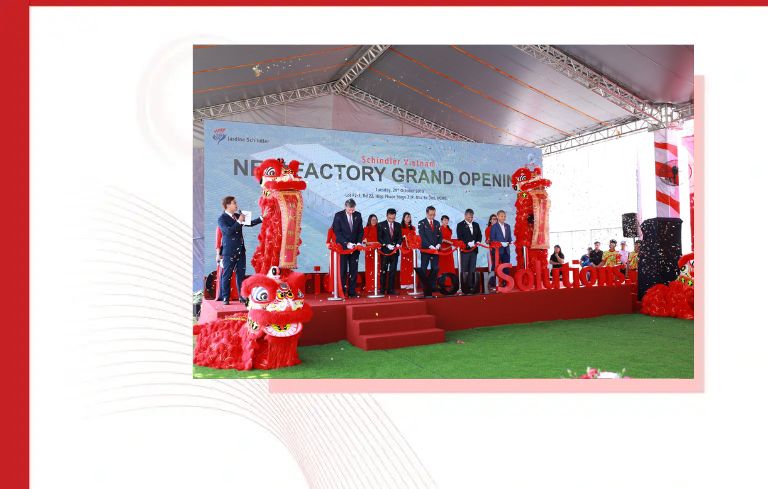Things to Take Care While Planning a Trade Show or Exhibition are here. Hire4event is Delhi based leading exhibition organiser. Planning a trade show or exhibition requires meticulous attention to detail and comprehensive coordination. From layouts to exhibitor registrations, every aspect demands careful consideration to ensure a successful event. Here are 20 essential things to take care of while planning a trade show or exhibition:
- Layouts: A well-planned layout is crucial for the success of any event. At Hire4event, we have an in-house team dedicated to creating impeccable layouts and 3D models for exhibitions, concerts, social gatherings, and public events.
- Renderings: We specialize in creating stunning 3D views for stalls, venues, buildings, stages, and carnivals. Prior to starting any project, we provide clients with detailed 3D renderings for approval.
- Auto CAD Drawings: Our in-house team of expert AutoCAD and CATIA designers ensures precise and accurate drawings for all our projects.
- Graphics: High-quality graphics are essential for any event. We provide top-notch graphic design services to enhance the visual appeal of your event.
- Signage: In the modern era of events, signage plays a crucial role in conveying information. We have an in-house unit equipped with printing machines to create various types of signage such as flex, blackout flex, back-lit signs, sunboards, standees, and cutouts.
- Exhibition Collateral: Collateral materials are essential for circulating information and product knowledge to attendees. We ensure that all collateral designs are approved by the client before proceeding further.
- Design: From print jobs to poster and flex designs, we are passionate about creating captivating designs for all your branding needs.
- Printing: With our own production house, we have an expert printing team capable of handling various printing requirements including vinyl, sunboard, flex, and more.
- Mailing: Our IT team is proficient in circulating emails, SMS, push messages, WhatsApp messages, and making telecalls for attendee coordination and marketing purposes.
- Response Management & Communication with Exhibitors: Effective communication with clients/exhibitors and attendees is paramount to the success of any event.
- Detailed Design & Allocation of Spaces: Proper allocation of stalls according to category, size, and location is crucial for a successful exhibition.
- Stand Construction: Our in-house inventory of hangers, platforms, furniture, and ready-made stands enables us to construct stands for events of any scale.
- Air Conditioning/Electricals & General Lighting: We provide air conditioning solutions tailored to the atmosphere, ensure electrical safety, and offer thematic lighting to create the desired ambiance.
- Security: As a one-stop solution for all exhibition needs, we provide security manpower and equipment including DFMD, baggage scanners, CCTV, and more.
- Government Permissions and Liaison: We handle all types of government permissions and liaison services on behalf of our clients.
- Catering/Food Court: We have a vast network of partners offering premium catering services to meet the culinary needs of your event.
- Freight & Forwarding: We coordinate with vendors and exhibitors to ensure smooth freight and transportation services.
- Execution & Timely Delivery of Conference Materials: Our expertise in light, sound, stage, fabrication, and venue branding ensures timely execution and delivery of all conference materials.
- Exhibitor Registrations: We handle exhibitor registrations and marketing, ensuring the smooth operation of your event.
- Temporary Staff: Our extensive network of volunteers and hostesses is capable of handling events of any scale, ensuring seamless operations.
- Hotel Accommodation: We have partnered with OYO Rooms and have our own property, Royal Paradise, near the India Exposition Mart in Greater Noida, ensuring comfortable accommodation for event attendees.
Planning a trade show or exhibition involves numerous moving parts, and attention to detail is key to ensuring its success. With our comprehensive event planning services, we ensure that every aspect of your event is taken care of, allowing you to focus on making your event a memorable experience for attendees and exhibitors alike.
Essential Elements for Organizing a Successful Exhibition
Organizing an exhibition is an exciting but complex task that requires careful planning and execution. Whether you’re planning a trade show, art exhibition, or any other type of event, paying attention to every detail is crucial for its success. To help you plan and execute a successful exhibition, we’ve compiled a comprehensive list of essential elements you need to consider:
-
Clear Objectives
- Define the purpose of your exhibition.
- Set clear goals and objectives to guide your planning process.
-
Budget Planning
- Determine your budget and allocate funds for each aspect of the exhibition.
- Consider all potential expenses, including venue rental, marketing, staffing, and supplies.
- Venue Selection

Vanue Selection
- Choose a suitable venue that meets your requirements in terms of size, location, and facilities.
- Consider factors such as accessibility, parking, and amenities for exhibitors and attendees.
-
Layout and Design
- Develop a detailed floor plan and layout for the exhibition space.
- Ensure that the layout allows for easy navigation and maximum exposure for exhibitors.
-
Marketing and Promotion
- Develop a comprehensive marketing plan to promote the exhibition.
- Utilize a mix of online and offline channels, including social media, email marketing, press releases, and advertising.
-
Exhibitor Acquisition
- Identify and recruit exhibitors that align with the theme and objectives of the exhibition.
- Provide exhibitors with all necessary information, including booth sizes, pricing, and deadlines.
- Set up an online registration system for exhibitors and attendees.
- Offer different ticket options, such as early bird discounts and VIP passes.
-
Logistics and Operations
- Arrange for transportation and logistics, including freight forwarding and setup.
- Coordinate with vendors and suppliers for equipment, furniture, signage, and other essentials.
- Technical Support

Technical Support
- Ensure that the venue is equipped with adequate technical support, including sound, lighting, and AV equipment.
- Hire experienced technicians to handle setup, operation, and troubleshooting.
-
On-site Management
- Assign dedicated staff to manage various aspects of the exhibition, including registration, information desks, and security.
- Conduct regular briefings and provide training to staff and volunteers.
-
Attendee Engagement
- Plan engaging activities and attractions to attract and retain attendees.
- Consider workshops, seminars, demonstrations, and networking events.
-
Health and Safety Measures
- Implement health and safety measures to ensure the well-being of exhibitors and attendees.
- Provide hand sanitizing stations, enforce social distancing, and follow local guidelines.
-
Feedback and Evaluation
- Collect feedback from exhibitors and attendees to assess the success of the exhibition.
- Identify areas for improvement and lessons learned for future events.
-
Post-Event Follow-up
- Thank exhibitors, attendees, sponsors, and partners for their participation and support.
- Share highlights and key takeaways from the exhibition on your website, social media, and newsletter.
Organizing an exhibition requires careful planning, attention to detail, and effective execution. By considering these essential elements, you can ensure that your exhibition is a resounding success, leaving a lasting impression on exhibitors and attendees alike.
Exhibition Marketing: Essential Things to Consider for Success
Exhibitions are a fantastic opportunity for businesses to showcase their products and services, network with potential clients, and generate leads. However, to make the most of these opportunities, effective exhibition marketing is essential. Here are some key things to consider when planning your exhibition marketing strategy:
-
Set Clear Goals
- Define what you want to achieve from the exhibition. Whether it’s generating leads, increasing brand awareness, or launching a new product, setting clear goals will help you focus your marketing efforts.
-
Know Your Audience
- Understand who will be attending the exhibition and tailor your marketing message to appeal to them. Consider their demographics, interests, and pain points to create targeted marketing materials.
- Start promoting your participation in the exhibition well in advance. Use a mix of channels such as email marketing, social media, press releases, and your website to create buzz and generate excitement.
-
Create Compelling Content
- Develop engaging content that highlights the benefits of visiting your booth. This could include product demonstrations, case studies, testimonials, or special offers.
-
Design Eye-Catching Graphics
- Invest in high-quality graphics and signage that will grab the attention of attendees. Your booth should be visually appealing and clearly communicate your brand message.
-
Offer Incentives
- Provide incentives for people to visit your booth, such as giveaways, contests, or exclusive discounts. This will help attract more traffic and generate leads.
-
Train Your Staff
- Ensure that your booth staff are well-trained and knowledgeable about your products and services. They should be able to engage with attendees, answer questions, and capture leads effectively.
-
Engage with Attendees
- Encourage interaction with attendees through live demonstrations, product samples, or interactive displays. This will help create a memorable experience and leave a lasting impression.
-
Collect Leads
- Have a system in place for collecting and managing leads effectively. This could be as simple as a paper sign-up sheet or a more sophisticated lead capture app.
-
Follow Up After the Exhibition
- Follow up with leads promptly after the exhibition to keep the momentum going. Send personalized emails, make phone calls, or connect on social media to nurture relationships and move leads through the sales funnel.
-
Evaluate Your Performance
- Measure the success of your exhibition marketing efforts by tracking key metrics such as leads generated, sales made, and return on investment (ROI). Use this data to identify what worked well and areas for improvement.
-
Continuous Improvement
- Learn from each exhibition experience and use that knowledge to refine your marketing strategy for future events. Experiment with different tactics and channels to see what delivers the best results.
By paying attention to these key elements of exhibition marketing, you can maximize your return on investment and make the most of your participation in exhibitions. With careful planning, creativity, and follow-through, you can achieve your marketing goals and stand out from the competition.
📞 Call: +91-9810617123
📧 Email: sales@hire4event.com
🌐 Visit: www.hire4event.com
📍 Address: 214, ABC Tower, Sec-135, Noida-201301




